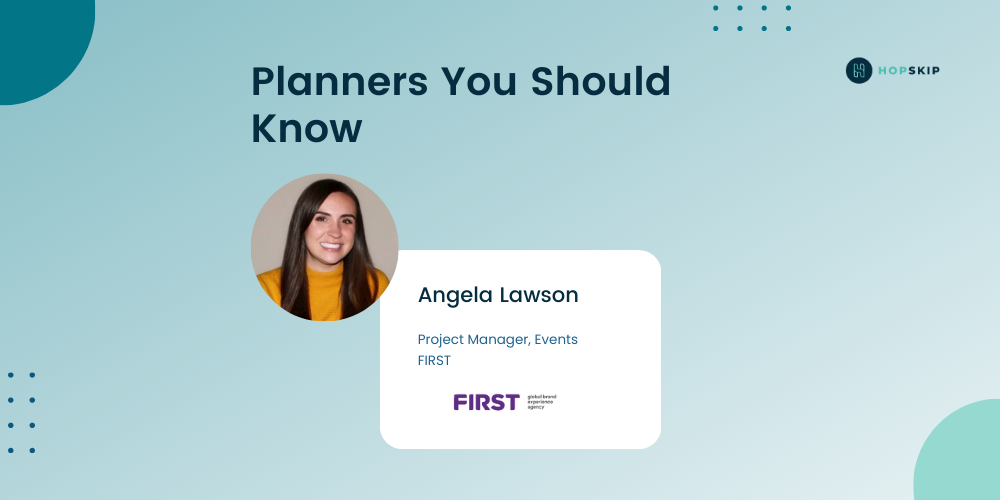Planners You Should Know - Angela Lawson, FIRST
Angela Lawson, of FIRST, discusses how she honed her skills over the pandemic to now be in position to overcome the challenges that the new meetings/events landscape brings.
Luke Whalin
Feb 22, 2023

This post is part of the HopSkip Planner Spotlight Series where HopSkip spotlights planners across the industry to bring awareness of how they adapted to COVID-19, communicating and lessons learned and sharing how they are viewing the meetings and events industry in a post-pandemic world.
Name: Angela Lawson
Company Name: FIRST
Job Title: Project Manager, Events
Years of Experience: 6
How did you get your start in the events industry? What made you pursue this role?
I knew I wanted a career that had to deal with organization and working with people. When I went to college I enrolled into the Tourism, Leisure and Event Planning program at my university. Event planning seemed like a natural fit. As I got into my career I started working more with brands and conference planning. As a Project Manager at FIRST it has allowed me to advance in both.
How do you compare planning your first in-person event post-pandemic, to planning meetings/events pre- Covid? What was different and unique? What was similar?
What was your number one challenge in hosting your first in-person event(s) and how did you overcome it?
My planning process was the same from pre to post pandemic. The major difference was post-pandemic event planning had an extra layer of risk management. I wanted to ensure the health and safety of the attendees by taking every step necessary to meet a higher standard of health.
My biggest challenge was getting back into the flow of in-person events. After being virtual for the past two years due to the pandemic, I had to revisit old planning lists to refresh my memory. It felt a lot like remembering to ride a bike. Once you get back on, it feels like you never left.
What is the top learning that you uncovered from the last two years that you’re implementing in your planning process today? (any other tips or tricks you want to share?)
I was able to take a class about contract law. Taking an extra class allowed me to be more well-rounded as an event planner. Using the education, I knew to look for certain wording in contracts that would protect my client. Tip: There are tons of free educational content offered by universities. I would recommend seeing what courses are being offered and if any can be tied into your role.
Get more than one option. Be sure to reach out to multiple hotels so you can make an informed decision. This will also give you a back-up if your first option is unavailable. If you know you will host the event annually, look into contracting multiple years at once.
Yes, I read my contracts thoroughly and look for language that is included to protect the group. Carefully checking the cancellation and postponement agreements.
By making sure planners have the correct contacts at the venue. Turn over has been high during the pandemic. Many of the venue contacts we had pre pandemic are not the same contacts post-pandemic.
Due to the pandemic, our events community had to evolve, adapt, and grow. Many planners started to embrace new technologies as a result of the pandemic. What new tech are you using today in your planning process as a result?
This post is part of the HopSkip Planner Spotlight Series where HopSkip spotlights planners across the industry to bring awareness of how they adapted to COVID-19, communicating and lessons learned and sharing how they are viewing the meetings and events industry in a post-pandemic w,orld.
During the pandemic we switched to platforms that could create fully virtual events. As we start to go back to in-person we are seeing how we can use these platforms and to accommodate hybrid events as well.
Since education and relationships are two major pillars in the meetings and events industry, any suggestions on how other planners can learn and network with their peers across the industry?
I was always prepared to network when working at an event. You never know who will walk in the door that day whether that be a vendor or an attendee. As I mentioned previously, see what free education content universities have to offer.